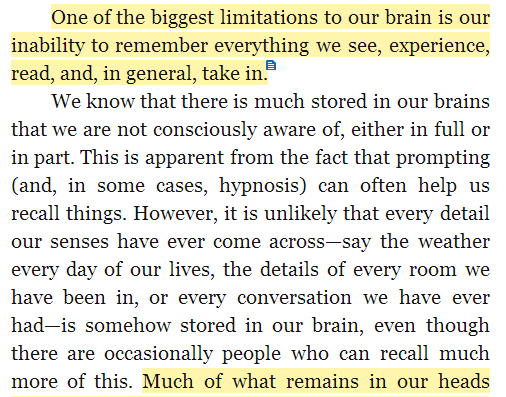In the Brain Gain Prensky talks about what makes us digitally wise. He poses a series of questions for us to ponder and think for ourselves if these technological advancements make us wiser. The first one he mentions is, “Are we wiser if we record everything our senses experience?” This really struck a chord with me. As a mom, I feel like I am constantly scrambling to make sure to record as many memories as I can of my children. I take pictures easily, but I have to be more conscientious to remember to take video or to write down things the kids say that I don’t want to forget. Recently, I have run into a dilemma; what to do with my kids artwork? There is so much of it; it comes home almost every day. How do I decide what to throw away and what to keep? I don’t think I can. So here is an idea: keep a few pieces of artwork and lay the rest out and take pictures of them! This way I have a recording of all the artwork without all the clutter. What a wise solution that supports the idea Prensky poses of recording our experiences. I think though, that in cases like this, having the ability to record does make me wiser- and neater. But I also wonder if we start to rely solely on our devices to remember for us, will we re-wire our brain (like Carr describes in relation to our brain’s neuroplasticity) and forget how to remember? I hold, as I do with most things, that it is about how we use it and moderating its use. This might look different for different people, so it is up to each individual to decide how to use the technology; if/when it becomes available. As for how this helps us as teachers, it is important that we keep up with new technologies so we can help guide the youth.
Carr shares a story in Chapter three of his book that mirrors my question above. Will we forget how to remember if everything about our life and our experiences can be digitally recorded? In Carr’s story Socrates is sharing a story about the Egyptian god Theuth and one of Egypt’s Kings, Thamus. The story is in the screen shot below.
At the end Socrates explains that he is concerned that if we begin to write everything down, we will begin to forget since we won’t have to remember anymore. After reading this and knowing that just because we write things down doesn’t mean we will forget, maybe my above concern is a moot point?
It seems, as Carr says, that these conflicting views of Plato and Socrates are similar to what people go through as each new technology has been introduced over time. It is just that recently technology is moving so fast people don’t have time to process these conflicts before having to make a decision.
This week I did my reading on my computer rather than my iPad. I need to update my iPad in order to download the Kindle App to be able to highlight. I also needed to download a different browser for my computer in order to visit the cloud reader website. In the end it was easier to download a new browser, so here I am reading on my laptop. I do enjoy reading more on the iPad. The backlighting on the computer makes it difficult to keep my eyes on the screen for too long. However, I do feel pretty accomplished for figuring out what is wrong with my iPad (with help from a classmate), and what is wrong with my computer. I also figured out how to take a screenshot on my computer. So even though the reading experience was not great, I feel like I accomplished a lot of tasks I did not know how to do before.
Carr, N. G. (2010). The shallows: What the Internet is doing to our brains. New York: W.W. Norton. (Kindle)
Prensky, M. (2012). Brain gain: Technology and the quest for digital wisdom. Basingstoke: Palgrave Macmillan. (Kindle)



